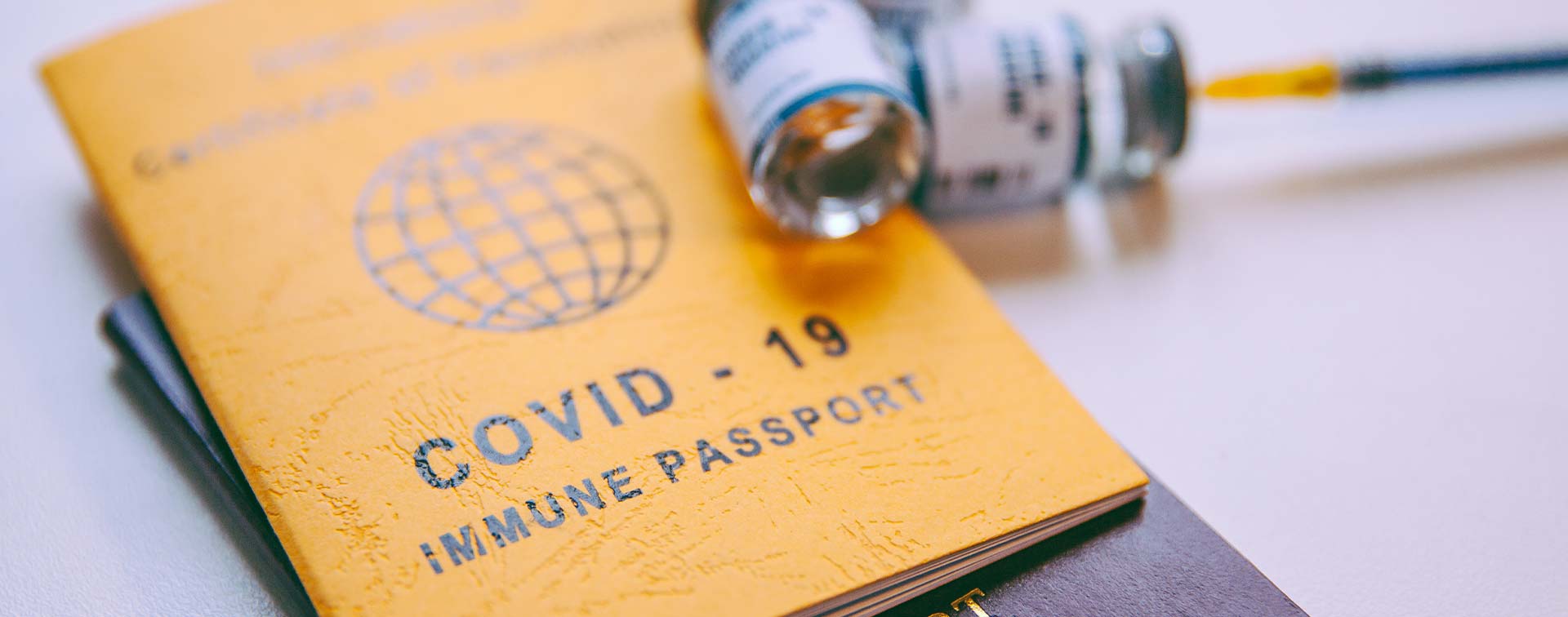
Ugur Altundal is a researcher in political science at Syracuse University.

Omer Zarpli is a researcher in political science at the University of Pittsburgh.
Vaccine passports have been proposed as a solution that will allow cross-border travel to resume, thereby partially alleviating the negative economic impact of the Covid-19 pandemic. While they may bring a degree of normalcy to international travel, any decision on this issue must carefully take into consideration the associated ethical dilemmas and potentially adverse health effects.
Vaccine passports certainly hold an appeal, given that extensive travel restrictions over the past year have had a significant negative economic impact, particularly on countries that rely heavily on tourism revenues. Understandably, popular tourism destinations such as Greece and Spain have been particularly enthusiastic about the idea. Others, including Denmark, Estonia, Israel, and Sweden, have announced plans to implement vaccine passports, which will allow holders of the passports to bypass Covid-19 travel restrictions for international travelers.
While the potential economic dividends of vaccine passports are clear, there are ethical questions that need to be considered.

There are substantial inequities in accessing vaccines. As the map shows, developing countries in the global south have considerably lower vaccination rates. The situation in Africa is particularly alarming. Some attribute this to “hoarding” and “vaccine nationalism” by more developed countries in the north. Furthermore, individuals in wealthy nations are more likely to be vaccinated sooner because prosperous countries tend to have better healthcare infrastructure, and most of the vaccines are currently being produced in these countries. Lower income nations, on the other hand, are not being provided with sufficient vaccines and in many cases their capacity to implement mass vaccination programs is limited. As more vaccines are approved and the supply increases, it is possible that the gap will become narrower and access to vaccines will be more equitable. This is what the World Health Organization’s COVAX initiative aims to achieve but experts warn that this is unlikely to happen before 2023 or 2024.
Given that there are many different vaccines with varying efficacy rates, it is not clear which vaccines should and will be used to determine whether or not an individual is safe to travel. Will the approved list be limited to Pfizer/BioNTech, Moderna, and Johnson & Johnson, or will vaccines manufactured by China, such as Sinovac, which reportedly has a lower efficacy rate but is used by large middle-income countries like Brazil, Indonesia, and Turkey also be considered? Russia’s Sputnik V, which is currently used in Argentina, Iran, and Venezuela, may become an important vaccine of choice in some lower-income countries. But would Sputnik V be included on the list of acceptable vaccines for international travel?
These questions are all the more important given the spread of new variants of Covid-19. There is also no scientific consensus on how long immunity from Covid-19 will last after receiving a vaccine, or over whether vaccines actually prevent the spread of the virus. While they may be effective in preventing an individual from getting sick for a certain period of time, there is still uncertainty over whether vaccinated individuals can transmit the virus to others.
There is also a danger that vaccine passports will create perverse incentives. Given that people will likely need to be vaccinated every year, developed countries might seek to secure vaccine supplies for future use. This could see developed countries focusing less on making vaccines available to less developed countries, impeding the speed of vaccination globally. Ultimately this could prolong the pandemic and raise the risk of further mutations.
Finally, there are imbalances and biases in accessing vaccines within developed countries. In the US, for example, the vaccination rate is lower in communities of color. In Britain, ethnic minorities are at least 50% less likely to be vaccinated owing to vaccine hesitancy amongst other reasons. Moreover, given that older people and individuals with underlying health conditions are being prioritized in some countries, vaccine passports may restrict the mobility of younger people who do not qualify for the vaccine — particularly in nations where vaccine rollouts are progressing slowly. There is a possibility that vaccine passports will create inequality among citizens of the same country. Unequal access might potentially be even more prevalent in undemocratic societies where vaccination processes are not as transparent.
Figure 1 - Total number of Covid-19 vaccine doses administered per 100 people in the total population
References
Cheng, M. “EXPLAINER: UN Vaccine Plan Is Underway, but Problems Remain.” AP NEWS. Associated Press, February 24, 2021.
Dyer, O. “Covid-19: Many Poor Countries Will See Almost No Vaccine Next Year, Aid Groups Warn.” BMJ, December 11, 2020, m4809.
Guenot, M. “Russia Struck Deals to Supply Its Vaccine to 40 Countries.” Business Insider South Africa. Business Insider Inc., March 5, 2021.
Karlis, N. “Heralded as Key to Returning to Normal, Digital ‘Vaccine Passport’ Plans Prompt Orwellian Concerns.” Salon. Salon.com LLC, February 10, 2021.
Mandavilli, A. “Plan to Ditch the Mask After Vaccination? Not So Fast.” The New York Times. The New York Times Company, March 3, 2021.
Razai, MS, Osama, T, McKechnie, DG, and Majeed, A. “Covid-19 Vaccine Hesitancy among Ethnic Minority Groups.” BMJ 372, no. n513 (February 26, 2021).
Schnirring, L. “WHO Director Calls for Easing of Vaccine Hurdles for Developing Nations.” CIDRAP. Regents of the University of Minnesota, January 8, 2021.
Wouters, O, Shadlen, KC, Salcher-Konrad, M, Pollard, AJ, Larson, HJ, Teerawattananon, Y, and Jit, M. “Challenges in Ensuring Global Access to COVID-19 Vaccines: Production, Affordability, Allocation, and Deployment.” The Lancet, Volume 397, Issue 10278, March 13, 2021, P1023-1034.